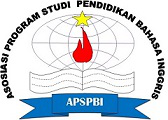HOW EMERGING CONCEPTS AND DIGITAL TECHNOLOGIES CAN RESPOND TO THE CHANGING NEEDS OF THE LEARNERS
Abstract
Abstract: The goal of this paper is to know how emerging concepts and digital technologies can respond to the changing needs of the learners. Digital technologies offer us promising opportunities to respond to and incorporate into the practice of educational assessment some of the emerging epistemologies. Epistemologies that may be integral to the effort to deliver high quality education to learners with diverse characteristics and life circumstances in our society. Exploration on development on technology, applied to how we conceptualized and implement assessment may help in the education enterprise to prepare learners for the challenges of the twenty first century workplace. Gordon commissioner and senior scholar Eva Baker (2012) observe that there are at least three rational approaches to dealing with the unpredictability of job and learning requirement in changing global context: 1) educational systems must become both operational and politically agile. 2) Assessment should always include task that call for transfer or the application of learning to new unexpected task, 3) learning and assessment should focus on more pervasive skills that could be embedded in different context and changing subject matter directed toward new applications. Baker identifies two simple and clear policy actions. First transfer must be regularly included as part of test or assessment used to measure learning. Second is to investigate the use of cognitive, interpersonal and intrapersonal skills which is understand as a type of interaction we expect to be demonstrated with components that interact with one another.
Keywords
Full Text:
PDFReferences
Baker, E. (2012) Testing in a global future. Princeton, NJ: Educational Testing Service. http://www.gordoncommission.org/rsc/pdf/baker_testing_global_future.pdf
Gordon, Edmund W., & Campbell, E. (2012) Context and Perspective: Implications for Gordon, Edmund W., & Campbell, E. (2012). Context and Perspective: Implication for assessment in education. Princeton, NJ: Educational Testing Service. http://www.gordoncommission.org/rsc/pdf/gordon_capambell_implications_assessme nt_education.pdf
Gordon, E. Wyatt, Gordon, Edmund W., Aber, J. L., & Berliner, D. (2012). Changing paradigms for education: From filling buckets to lighting fires to cultivation of intellective competence. Princeton, NJ: Educational Testing Service. http://www.gordoncommision.org/rsc/pdf/gordon_gordon_berliner_aber_changing_pa radigms_education.pdf
Matthew Lynch (2017) https://www.thetechedvocate.org/7-ways-digital-technology- changing-face-education/
Mislevy, R. J. (2008). Some implications of expertise research for educational assessment. Keynote address at the 34th International Association for Educational assessment (IAEA) conference, Cambridge university, September 8. Retrieved May 16, 2011, form http://iaea2008.cambridgeassessment.org.uk/ca/digitalAssests/138340_Mislevy.pdf
Mislevy, R. J., (2012). Postmodern test theory. http://www.gordoncommission.org/rsc/pdf/mislevy_postmodern _test_theory.pdf
Priebe, G., Mitchell, K. J., & Finkelhor, D. (2013). https://cyberpsychology.eu/article/view/4278
DOI: http://dx.doi.org/10.20527/jetall.v1i2.7373
Article Metrics
Abstract view : 408 timesPDF - 543 times
Refbacks
- There are currently no refbacks.
This journal is indexed in:


This Journal is listed in:
 Journal of English Teaching, Applied Linguistics and Literatures (JETALL)
Journal of English Teaching, Applied Linguistics and Literatures (JETALL)








.png)



1.png)
